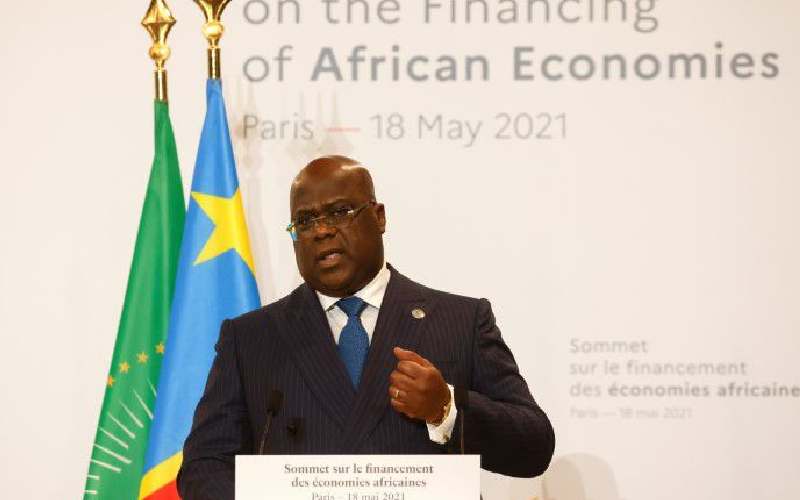×
The Standard e-Paper
Smart Minds Choose Us

President of Congo Democratic Republic and AU Chairperson Felix Tshisekedi speaks during a joint news conference at the end of the Summit on the Financing of African Economies in Paris, France May 18, 2021.[Reuters]
Hospitals in Democratic Republic of Congo's capital Kinshasa are "overwhelmed" by a rise in COVID-19 infections, President Felix Tshisekedi said on Saturday, as the country was hit by a third wave of the disease.